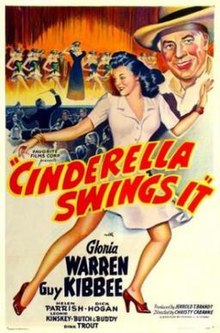
William Best, known professionally as Willie Best or Sleep n' Eat, was an American television and film actor.

Nancy Gates was an American film and television actress.
Clarence Budington "Bud" Kelland was an American writer. Prolific and versatile, he was a prominent literary figure in his heyday, and he described himself as "the best second-rate writer in America".

They Got Me Covered, also known as Washington Story and The Washington Angle, is a 1943 comedy film directed by David Butler and starring Bob Hope and Dorothy Lamour. Otto Preminger appears in a supporting role.
Francis "Dink" Trout was an American actor, voice artist and radio personality.
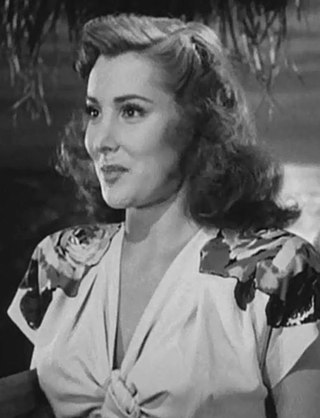
Gloria Warren was an American actress, soprano singer, and philanthropist.

Carol Hughes was an American actress. She is best remembered for her leading roles opposite Gene Autry and Roy Rogers, and for her role as Dale Arden in Flash Gordon Conquers the Universe (1940).
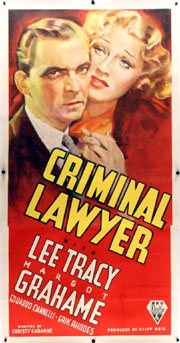
Criminal Lawyer is a 1937 American drama film directed by Christy Cabanne from a screenplay by G. V. Atwater and Thomas Lennon, based on a story by Louis Stevens. The film stars Lee Tracy, Margot Grahame and Eduardo Ciannelli. RKO produced the film and premiered it on January 26, 1937, in New York City, with a national release a few days later on January 29. It was the second time Stevens' story had been used for a film, the first being 1932's State's Attorney, starring John Barrymore and Helen Twelvetrees, directed by George Archainbaud, and also produced and released by RKO.

Don't Tell the Wife is a 1937 American comedy film directed by Christy Cabanne using a screenplay by Nat Perrin adapted from the play, Once Over Lightly, written by George Holland. The film stars Guy Kibbee, Una Merkel, and Lynne Overman, with Lucille Ball, William Demarest, and Academy Award winner Hattie McDaniel in supporting roles. Produced by RKO Radio Pictures, it premiered in New York City on February 18, 1937, and was released nationwide on March 5.
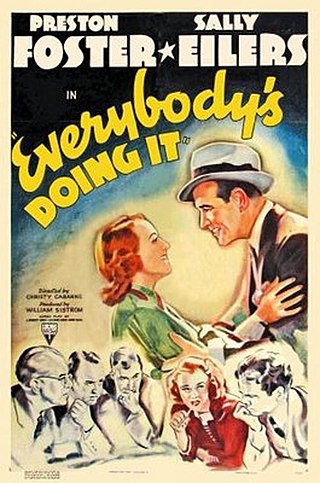
Everybody's Doing It is a 1938 American comedy film directed by Christy Cabanne using a screenplay by J. Robert Bren, Edmund Joseph, and Harry Segall, based on George Beck's story. RKO produced and distributed the film, releasing it on January 14, 1938. The movie stars Preston Foster and Sally Eilers.

Scattergood Meets Broadway is a 1941 American comedy film directed by Christy Cabanne and written by Michael L. Simmons and Ethel B. Stone. It is the sequel to the 1941 film Scattergood Pulls the Strings. The film stars Guy Kibbee, Mildred Coles, William "Bill" Henry, Emma Dunn, Frank Jenks, Joyce Compton and Bradley Page. The film was released on August 22, 1941, by RKO Pictures.

Scattergood Rides High is a 1942 American comedy film directed by Christy Cabanne and written by Michael L. Simmons. It is the sequel to the 1941 film Scattergood Meets Broadway. The film stars Guy Kibbee, Jed Prouty, Dorothy Moore, Charles Lind and Kenneth Howell. The film was released on May 8, 1942, by RKO Pictures.

Scattergood Survives a Murder is a 1942 American mystery film directed by Christy Cabanne from a screenplay by Michael L. Simmons, based on the series of short stories about "Scattergood Baines", penned by Clarence Budington Kelland.

Around the World is a 1943 American comedy film produced and directed by Allan Dwan, from an original screenplay by Ralph Spence. RKO Radio Pictures premiered the film at the Globe Theater in New York on November 24, 1943. The film has a large cast, and stars Kay Kyser and his band, Mischa Auer, Joan Davis, Marcy McGuire, Wally Brown, and Alan Carney.
Arthur Martinelli was an American cinematographer whose career spanned from the silent era through the golden age of American movies. During that time he shot over 100 films. A pioneer in the industry, he was the cinematographer to film the first movie to star Ethel and John Barrymore.
Richard Cahoon was an American editor of both film and television. During his career he edited over 40 feature films, and over a dozen television series. His work earned him an Emmy nomination and two Eddie Awards.

Dixon Howard "Dick" Hogan was an American actor of the 1930s and 1940s. During his 12-year career he appeared in over three dozen films, in roles which varied from unnamed bellhops to featured and starring roles. His final film performance was as the murder victim in Alfred Hitchcock's Rope (1948).
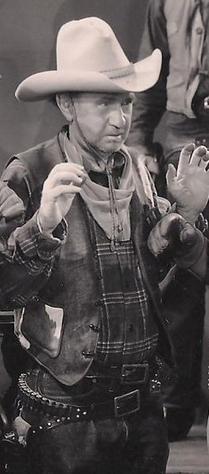
Leroy Robert White, better known as Lee "Lasses" White or Leroy"Lasses" White, was an American vaudeville pianist, songwriter and entertainer who became an actor of the stage, screen and radio. He became famous doing minstrel shows during the early part of the 1900s, and wrote one of the first copyrighted twelve-bar blues, "Nigger Blues". After spending some time on radio, White entered the film industry in the late 1930s. During his eleven-year career he appeared in over 70 films.

The Average Woman is a 1924 American silent melodrama film directed by Christy Cabanne and starring Pauline Garon, David Powell, and Harrison Ford. It was released on March 1, 1924.
Michael L. Simmons (1896–1980) was an American screenwriter and novelist. The 1933 film The Bowery was based on his novel Chuck Connors.
